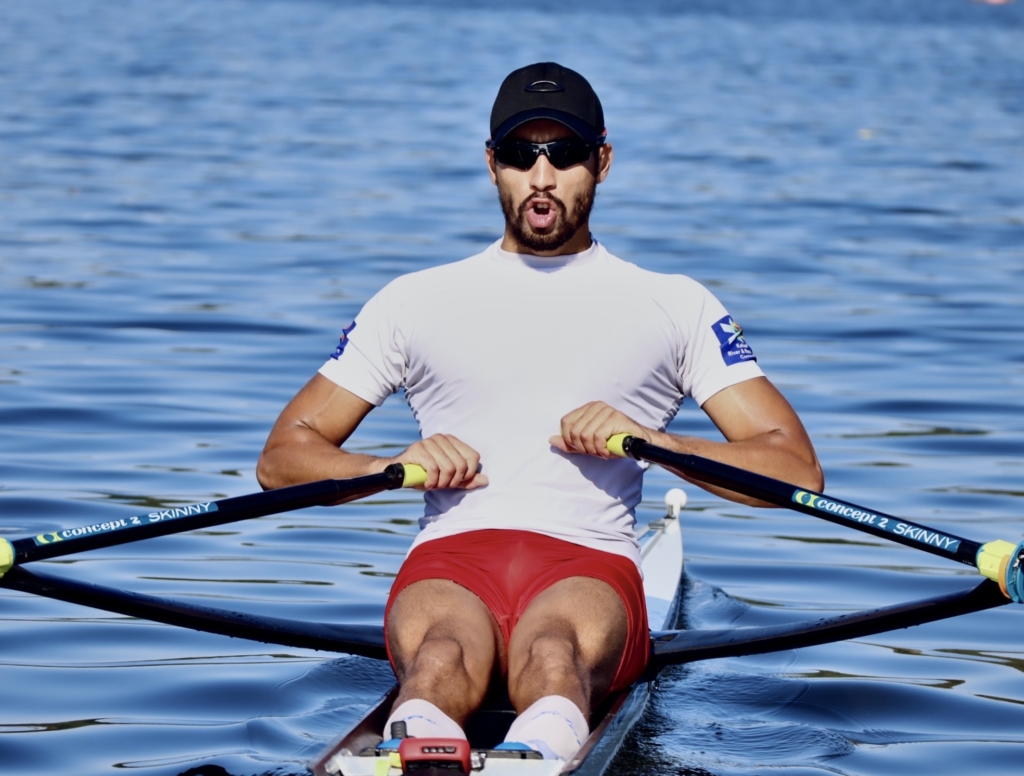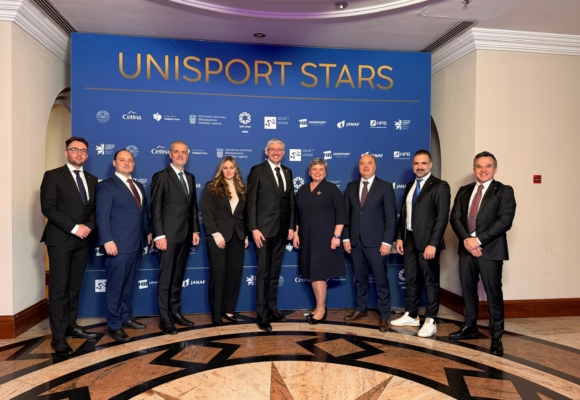Mo Taieb is doing everything by the book in his planning of the rowing competition for the Rhine-Ruhr 2025 FISU World University Games, where he occupies the position of sport manager, but the three-time Olympian owes much of his own success to a celebrated novel he never even read.
Taieb was 11 years old when his father bought him a copy of ‘The Boys in the Boat’, an account of the USA rowing team’s defeat of the German ‘eight’ before the Berlin 1936 Olympic Games.
Later made into a film directed by George Clooney, the story inspired Taieb’s own epic journey from a saltwater lake in Tunisia to Olympic appearances on three different continents.
“It was my father’s choice that I went into rowing,” Taieb, 28, says. “He bought me this book about these rowers who made it by balancing studying and sport. At that age, I was not the type to be reading a lot, so he said, ‘You don’t need to read the book, but you do need to try the sport’.”
A keen tennis player up to that point, Taieb was all too happy to trade his bag of rackets for a pair of oars and a single scull.
“I found the magic of rowing is when you sit in the boat and just push from the pontoon into the water,” he said. “You disconnect from life – all of the problems and all of the stress – and you start connecting with nature. And the point with rowing is that we go in the other direction; we don’t even see what’s coming. So it’s all in your mind.”
Rowing as therapy during the revolution in 2011
In Tunisia, few people foresaw the tumultuous events of 2011, when a protest just north of Tunis sparked the so-called ‘Arab Spring’ uprisings across the region. For Taieb, then aged 14, a whole new world of problems and stress was not far away.
“There was the revolution in Tunisia and everything was different, there were many people protesting on the streets,” he recalls. “In this time, I wanted to disconnect from everybody and focus on my sport. Rowing was a form of therapy, for sure. It still is.”
Against an uncertain backdrop he continued to make progress, winning medals at the Arab and African championships, debuting at the world championships, and stamping his ticket to the Nanjing 2014 Youth Olympic Games. But despite Tunisia being home to the largest Olympic rowing centre in Africa, Taieb saw that his options to progress at home were limited.
“Tunisia is a small country and although we have the infrastructure for rowing, we don’t have the culture of competition,” he says. “I realised I needed to do something. After completing my school exams at the end of 2015, I decided to go ‘all-in’ for sport and the Olympics.”
Taieb moved his life to Germany, learning a new language and integrating into the German rowing programme. A bold move, but the right one: a full Olympic debut followed in Rio de Janeiro the following summer.
“Rio made a big change in my career,” he says. “I found the right balance between studying and rowing at a high level, because what makes the student-athlete special is how they can manage the time.”
And what about managing the physical toll of such a brutal endurance event?
“I have never rowed to the start without believing 110% in myself, and without the idea of fighting to the death,” he says. “In the first two minutes of the race, the body is still fresh, but to manage the last four minutes, you enter a dark tunnel. Lactic acid hits all over your body but you know you have a reserve and so your brain says, ‘I can manage that; keep moving the boat’.”

Keep moving, he did. Up the world rankings to a career high water mark at the 2022 world championships – when he won silver in the single scull – and to a second Olympic Games in Paris last summer. But there have also been setbacks, such as missing out on the Tokyo 2020 Olympics by mere seconds.
“For all athletes, it’s not about when you are on the up – it’s about when you are injured or when you feel done,” he says. “There are days when you feel really bad that the boat doesn’t move, and that’s when you need to manage the mental aspect of this sport.
“But I’m not alone. I have my wife and family, a federation, and my coach and physio. And if you stay in a team that believe in you – and you believe in yourself – you can do what I have done in my career.”
And has his father stayed on that same page, in the two decades since buying the book?

“From the beginning, he’d say: ‘Just focus on your education’. But I believe he’s more than happy now, because the results have been fantastic. However, it’s not about gold or silver or bronze. It’s about all the friendships you make along the way. That’s the gold in this sport.
“So if I can give any advice to a student-athlete, I’d say make a lot of friends here at the FISU World University Games, and just go for it.”



